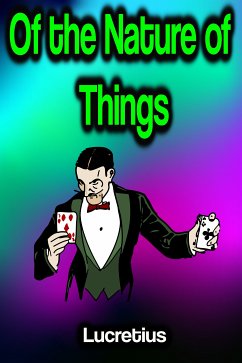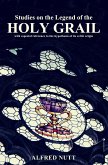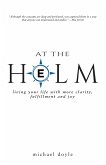Of the Nature of Things Lucretius - Lucretius' poem On the Nature of Things combines a scientific and philosophical treatise with some of the greatest poetry ever written. With intense moral fervour he demonstrates to humanity that in death there is nothing to fear since the soul is mortal, and the world and everything in it is governed by the mechanical laws of nature and not by gods; and that by believing this men can live in peace of mind and happiness. He bases this on the atomic theory expounded by the Greek philosopher Epicurus, and continues with an examination of sensation, sex, cosmology, meteorology, and geology, all of these subjects made more attractive by the poetry with which he illustrates them.very little is known about the Roman poet and philosopher Titus Lucretius Carus. His birth and death dates are based off of cross-referencing works that mention him, and pieces of evidence derived from his writing, and are believed to be circa 99 BC54 BC. On the Nature of Things is Lucretiuss only known work. The goal of the text is to explain Epicurean philosophy to the Roman people. It is addressed to Gaius Memmius, a praetor and patron of Lucretius. Presented in this work is an argument for atomism, the assertion that it is not the Gods that are responsible for the happenings of the world, but rather atoms and voids. Lucretius also argues that death is simply the dissipation of the human mind, and that it is not something we should fear. On the Nature of Things is a detailed articulation of ancient thought-provoking debates which are still relevant today. This edition is printed on premium acid-free paper, follows the verse translation of William Ellery Leonard, and includes an introduction by Cyril Bailey.
Dieser Download kann aus rechtlichen Gründen nur mit Rechnungsadresse in A, B, BG, CY, CZ, D, DK, EW, E, FIN, F, GR, H, IRL, I, LT, L, LR, M, NL, PL, P, R, S, SLO, SK ausgeliefert werden.









